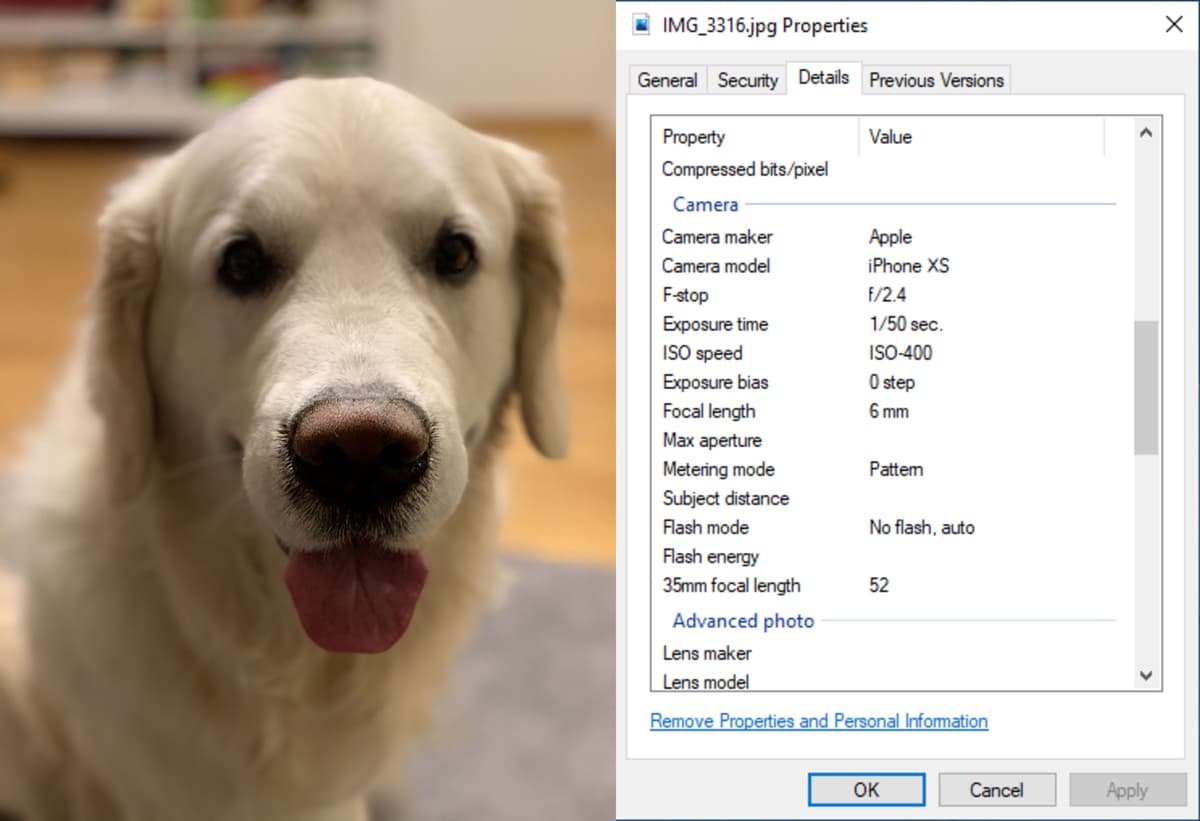Reverse image search - things you should know
With technology as the new medium we talk through and pictures becoming a new form of communication in memes, sharing experiences, or when we give up trying to explain something and simply take a picture, searching for things using words may not get the results we need. Because of this, major search engines have rolled out reverse image search. While many people know what reverse image search is and have probably used it, there is a good chance they do not know the basic parameters surrounding its use, and like everything else, just go about using it blindly. Below are some common questions and important basics about reverse image search.

What is reverse image search used for?
Put simply, reverse image search is using a picture to search for words or other pictures. For instance, if there is a car that you saw on the street and snapped a picture of but cannot tell what brand or model it is, you could plug it into a reverse image search engine, and after it is compared with billions of pictures, it will find the ones most similar, and you can find the car in other pictures, hopefully finding the brand and model attached with it.
Is reverse image search safe?
Yes, reverse image search is a safe and secure tool. However, as with all online tools, it's crucial to use caution when utilizing this technology - especially on sensitive personal photographs. Therefore, always practice common sense to ensure your safety while using reverse image search!
Is reverse image search accurate and reliable?
In general, reverse image search is accurate and reliable, but results may not always be 100 percent complete. If the photo has been heavily edited or its quality is poor, it may be more complicated for a reverse image search to locate other similar images and discover their original source.
Does reverse image search work with screenshots?
Yes, reverse image search works with screenshots. Many times, a screenshot is the most convenient way to transfer a picture from online to our own phone's storage, but the search engine will recognize it all the same.
Here at Copyseeker, we've tested and proved that screenshots can also be tracked with our very own search engine. The results show the simplest of images being featured on major platforms as well as uncommon sites, perfectly ranked.
Does reverse image search work on Instagram?
Instagram itself does not provide a built-in feature for reverse image searching. However, this functionality can be accessed through various third-party applications. These applications enable users to discover where an image has been used on the internet or to find similar images.
The most convenient method to perform a reverse image search from Instagram is by using a browser extension. This tool simplifies the process: when you find an image on Instagram that you want to search, you can simply click on it if you're using the extension, and it will automatically conduct a reverse image search for you.

For those who opt not to use browser extensions, there is an alternative manual approach. You can either copy the URL of the image directly from Instagram or save the image to your device. Then, go to a reverse image search engine like Copyseeker or Google Images, and either upload the image or enter the image's URL. This method will allow you to perform the reverse image search manually, providing you with the information or similar images you're looking for.
Does reverse image search work on Facebook?
Facebook does not have a reverse image search feature integrated into its platform. However, the capability to perform a reverse image search for pictures found on Facebook is available through various third-party applications. These applications extend the functionality to users who wish to find the origin of an image or locate similar images across the web.
One of the most user-friendly solutions is to utilize a browser extension designed for reverse image searching. With such an extension installed, a user can simply click on an image displayed on Facebook, and the extension will automatically carry out a reverse image search, streamlining the process considerably.

For users who prefer not to install additional software, there is also a manual method available. This involves copying the image's URL from Facebook or downloading the image to your device. Once you have the URL or the image file, you can visit a reverse image search engine like Copyseeker or Google Images. There, you can either paste the URL into the search bar or upload the image file to conduct the search. This manual approach, while requiring a few more steps, effectively allows you to use the reverse image search for images from Facebook.
Does reverse image search work on X (formerly Twitter)?
While X does not offer a native reverse image search feature, users are not left without options. Third-party applications have stepped in to fill this gap, allowing for reverse image searches of X content.
One of the most straightforward methods to perform such a search is by using a browser extension. With a simple click on an image within X, the extension can initiate a reverse image search, streamlining the process significantly.

For those who prefer not to use extensions, there's also the manual route: you can either copy the image's URL or download the image directly to your device. Once you have the image or its link, you can then navigate to a reverse image search engine like Copyseeker or Google Images and upload the image or paste the URL to conduct the search. This method, while a few steps longer, is just as effective in tracing the origins of an image or finding similar ones across the web.
Here at Copyseeker, we've tested our reverse search engine on Twitter and it's a thumbs up! The results show the image being featured on multiple tweets.
Does reverse image search work on Pinterest?
Yes, reverse image search works on Pinterest. You can easily use the built-in search feature called "Visual Search" on the website or mobile app, just upload the image or paste the image URL and boom, you'll find similar images and related pins. Plus, you can also use third-party reverse image search tools like Google Images or TinEye to search for an image on Pinterest.
Does reverse image search work on an iPhone?
Yes, reverse image search definitely works on an iPhone. You can use the built-in search feature on the Safari browser or other browsers like Chrome to upload an image or paste the image URL and find similar images or related pins. Additionally, you can also use a third-party reverse image search app like Google Lens or Copyseeker to search for an image on your iPhone.
More detailed instructions on how to reverse image search on iPhone.
Does reverse image search work on an Android?
Yeah, reverse image search works on Android too. You can use the built-in search feature on Google Chrome or other browsers to upload an image or paste the image URL and find similar images or related pins. Additionally, you can also use a third-party reverse image search app like Google Lens or Copyseeker to search for an image on your Android device.
More detailed instructions on how to reverse image search on Android.
How to find someone with a picture?
In today's digital age, identifying or locating someone using just a photograph has become more achievable than ever. Whether you're tracing an old picture or verifying an individual's identity, various tools and platforms can assist in this quest. Here's a quick guide to help you navigate this process:
Reverse image search: Use platforms like Google Images, TinEye, or Copyseeker.
Social media scan: Utilize third-party tools that can search within platforms such as Facebook or Instagram.
People search engines: Turn to platforms like Pipl or Spokeo for potential matches.
Facial recognition: Offers precise matches, though its accessibility may be limited.
Community help: Engage with platforms like Reddit, where communities can assist in identification tasks.
It's important to note that not every photo is readily indexed online, so the results can sometimes vary and always operate with integrity, ensuring you're searching ethically and upholding privacy standards.
Why did reverse image search get worse?
Over the years, many users have noticed that the efficiency and accuracy of reverse image search seem to have declined. While it remains a powerful tool, there are several reasons why its performance might appear to have deteriorated:
The explosion of online content: the vast amount of new images uploaded daily makes it harder for search engines to provide accurate matches.
Image alterations: filters, cropping, and other edits can make images appear different, challenging search engines to recognize them.
Advanced privacy settings: stricter privacy settings on platforms limit the search engine's ability to index some images.
Why doesn't reverse image search work?
While reverse image search is pretty fast, steady, and reliable, it is not bulletproof and instantaneous. There may be some issues in the search or the AI's recognition of the image, but the most common issue is that it takes a while for uploaded pictures to be recognized and added to the image search database, meaning fresh content and uploads will not be found by reverse image search as easily as old, highly accessed uploads.
Latest Blog Posts

Reverse image search - things you should know
Dive into the intriguing world of reverse image search. This guide illuminates its mechanics, benefits, and myriad applications. Learn how it empowers digital investigation, from validating image origins to discovering visually similar content.

EXIF Data: Understanding, Finding, Using, and Removing It
EXIF is the data from camera settings stored in an image file. This data includes settings like shutter speed, max aperture, ISO, white balance, camera model and make, flash mode, metering mode, focal length, and more.
How to Reverse Image Search on iPhone?
Reverse image search is a valuable tool for finding the original source of an image, verifying its authenticity, or discovering similar images. This article will walk you through the process of performing a reverse image search on your iPhone.
Why Copyseeker still the best reverse image search engine?
As the landscape of reverse image search engines continues to evolve, one platform consistently outshines its competitors – Copyseeker. In 2022, it was recognized as the best, and it has only upped its game since then.